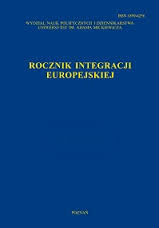Common Commercial Policy of the European Union and its
significance to the world trade. Transatlantic Trade and Investment Partnership case study
Common Commercial Policy of the European Union and its
significance to the world trade. Transatlantic Trade and Investment Partnership case study
Author(s): Artsiom TkachukSubject(s): International relations/trade
Published by: Uniwersytet Adama Mickiewicza
Keywords: CCP; EU-U.S. trade; trade standards;
Summary/Abstract: The main aim of the paper involves evaluation of significance of the Common Commercial Policy (CCP) for the EU and understanding of its role in the global perspective. Transatlantic Trade and Investment Partnership (TTIP) bargaining is analysed through the prism of the CCP’s formation history, objectives, achievements and unresolved issues. An important result of the research is the conclusion that European’s/EU’s attempts to provide depoliticized common trade policy collide with its objectives of values’ exporting. Commitment to preferential treatment of developing and least developed countries creates a field of instability and endangerment of a double standards. Current EU-U.S. Free Trade Agreement talks remain a particular case that reveal gaps, but also achievements of the CCP and its role in the global trade. TTIP negotiations are a milestone in a process of the global trade standards elaboration. If exhausting bureaucratic bargaining looks uncomfortable for the U.S.’ realpolitik, it perfectly suits to the CCP which was creating the same way.
Journal: Rocznik Integracji Europejskiej
- Issue Year: 2016
- Issue No: 10
- Page Range: 481-496
- Page Count: 16
- Language: English

